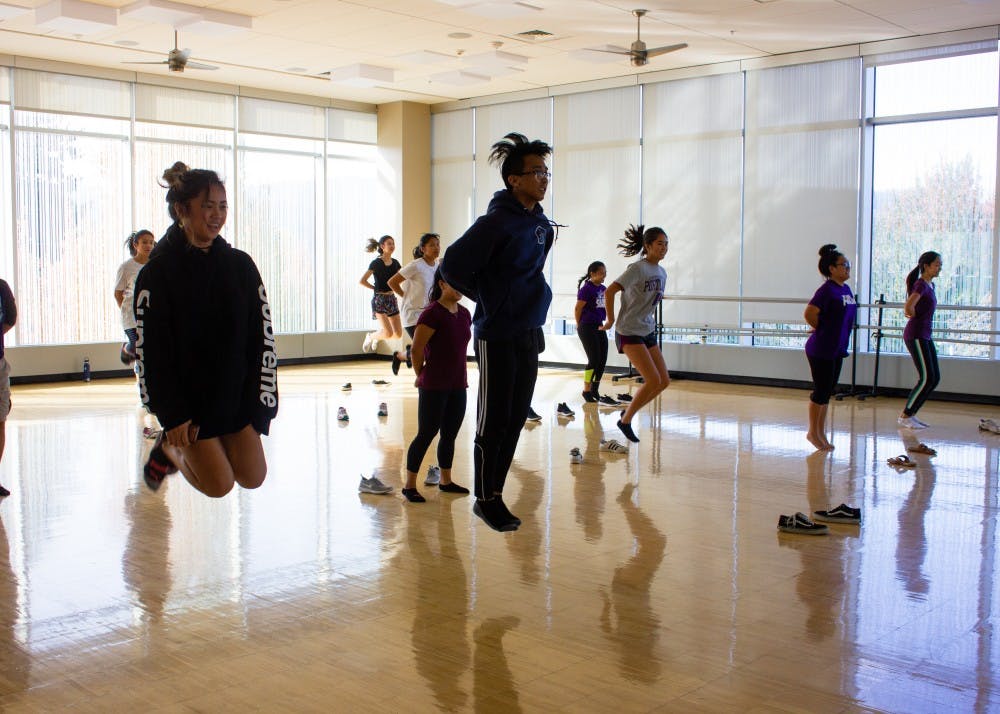When senior nursing major Isabella Garcia first arrived at the UP campus, she not only had to adjust to a new roommate and new classes; she also had to adjust to a region that was culturally very different than her home in Los Angeles, California. As a first-generation Filipino American, she wanted to find a group on campus that shared aspects of her home culture. Her family encouraged her to to join the Filipino American Student Association (FASA) where she found both community and connection to her heritage.
FASA is not only a club that educates students about Filipino culture, but it’s also a place where students meet new friends and find a home. FASA is a steadily growing club on campus since it was first created six years ago, and has approximately 40 club members. The club is open to students from all cultural backgrounds who are interested in engaging and learning more about Filipino culture.
“FASA is a club, and family and support group, I would say, just people who share a similar culture as you,” said Garcia, now a Student Advisor for FASA. “It's a place where you can meet different people of different backgrounds but have something in common with.”
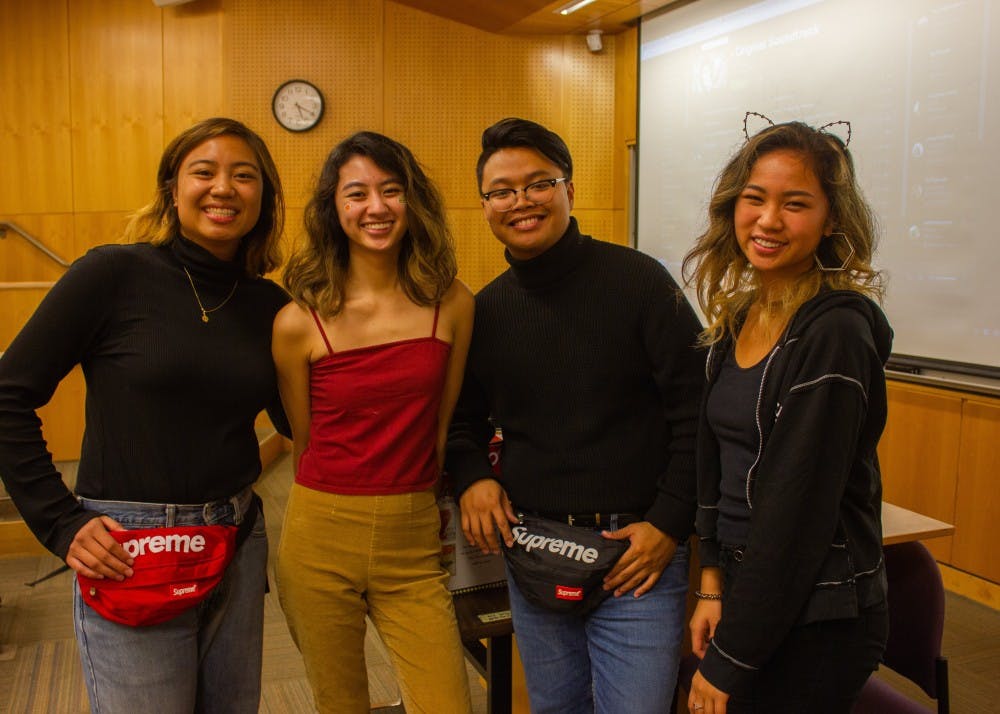
Leaders of FASA Isabella Garcia, Sabrina Legaspi, Tristan Martin and club president Chloe Tanega.
FASA President Chloe Tanega, senior psychology and communication double major, described in one word what FASA represents for students and why she loves the club: ‘kapamilya,’ which means family.
“I think that's just a result of family being important in Filipino culture itself, but also here on this campus especially we try to build a family within the club because it is hard trying to explore your community when not that many people on campus look like you,” Tanega said. “So, it's a really nice space to explore your culture and develop who you are as a person in general around other people who are going through the same experiences as you.”
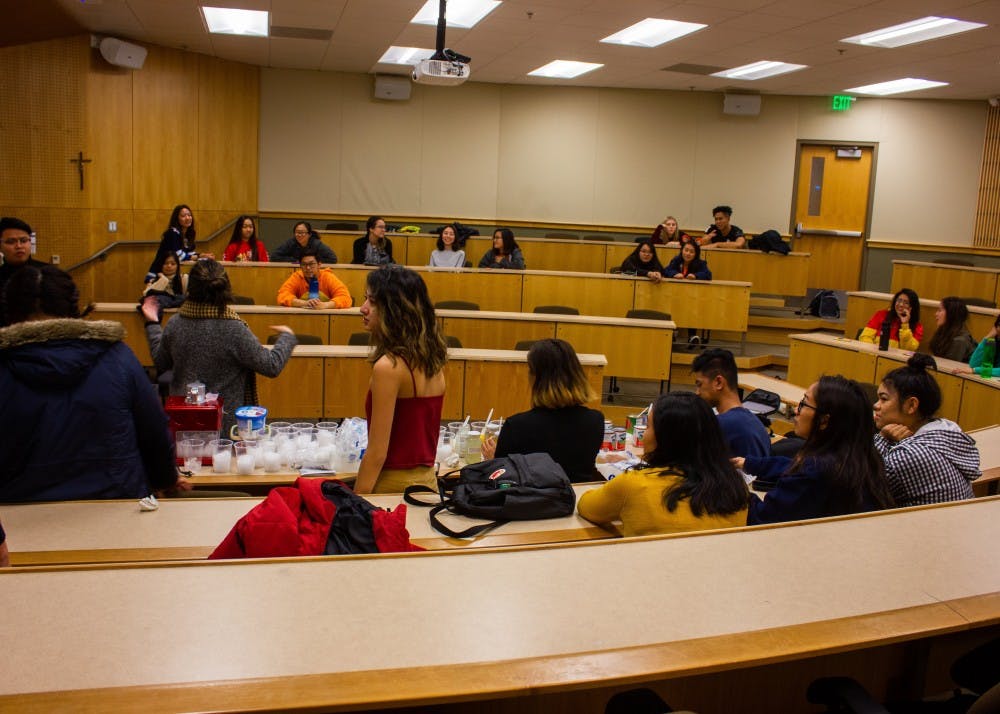
FASA members gather in Franz for a Halloween celebration .
UP is a part of a larger FASA community that extends to other schools in the Pacific Northwest, including Gonzaga and University of Washington. Every year, the Northwest FASA clubs compete in the Filipino Olympics where they play relay games.
FASA also attends the yearly Northwest FASA Conference in the spring, which is hosted by a different school each year. FASA members can attend workshops about current issues happening in the Philippines and engage in discussions about the experiences of Filipino Americans. The conference is an opportunity for students to connect with other schools and participate in cultural conversations.
“You have that one day in the year where you get to be surrounded by people like you from all across the Pacific Northwest,” said Tristan Martin, junior political science and history double major. “Being able to come together and relate to each other despite our backgrounds where we grew up, but still have the same attachments to our culture, it’s great.”
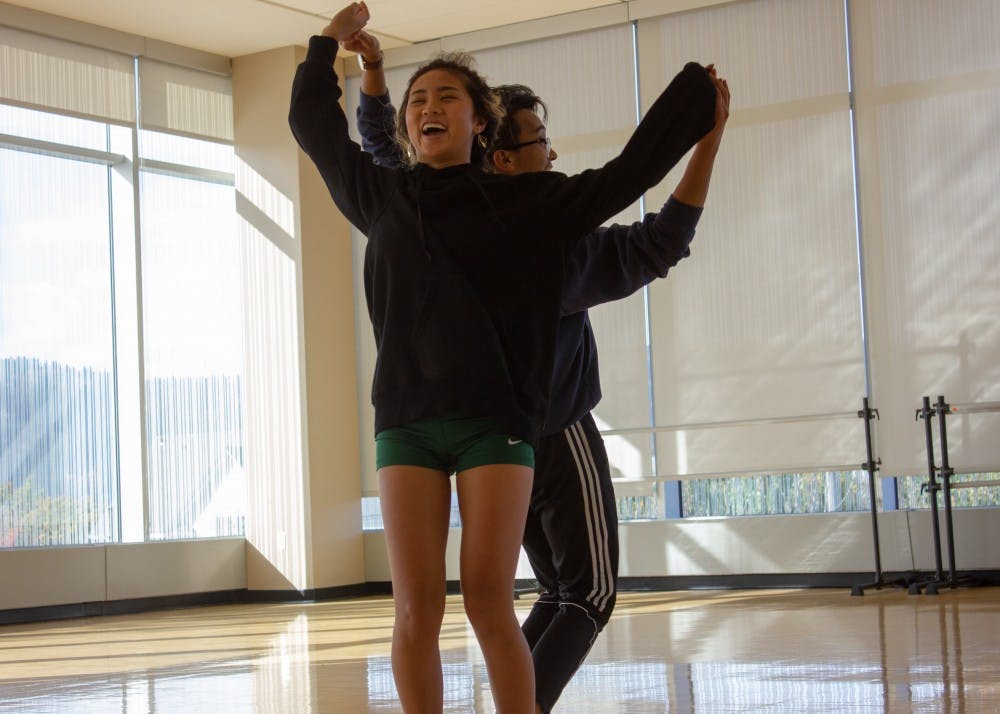
FASA President Chloe Tanega and FASA Student Advisor Kyle De La Cruz practice some dance moves.
According to Tangea, one of the biggest parts of Filipino culture is celebration. In addition to monthly meetings, FASA hosts several events throughout the year, including a cooking night and a karaoke night.
“If you ever see our club, we’ll be dancing or singing,” Garcia said. “We’re all about expressing ourselves. We’re not afraid to come off as a little intimidating, in a sense. We just like celebrating things. Filipino culture is really big on celebrating life.”
The biggest event that FASA holds each year is Filipino Cultural Night where the entire campus is invited to watch performances of traditional and contemporary Filipino dances and try traditional Filipino foods. This year’s cultural night will be on March 15th and will mark the fifth annual hosting of this event.
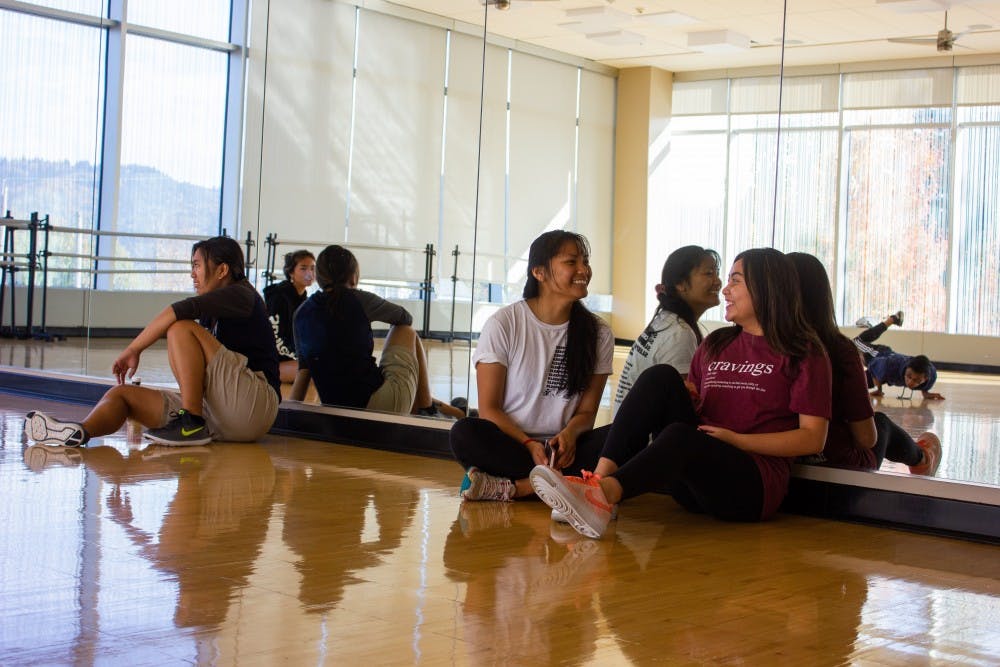
A few FASA club members take a break during dance rehearsals.
“Basically it showcases our dancing and our singing, and we usually we do a skit,” Garcia said. “And my favorite thing about that is I get to meet and get to know people on a personal level that I haven’t met through the club.”
FASA members said that another big aspect of Filipino culture is the food. Garcia said her favorite Filipino food is Lumpia, a type of of spring roll that she makes with her family every year. FASA tries to cater authentic Filipino food at all of their events and meetings. Tanega said that if they can’t find catering, other club members will teach the officers how to cook traditional foods, or they’ll call their parents and grandparents and ask them how to cook certain dishes.
“I know that just by eating the food from home makes people feel more at home, too,” Tanega said. “It’s just comforting to eat Filipino food sometimes.”
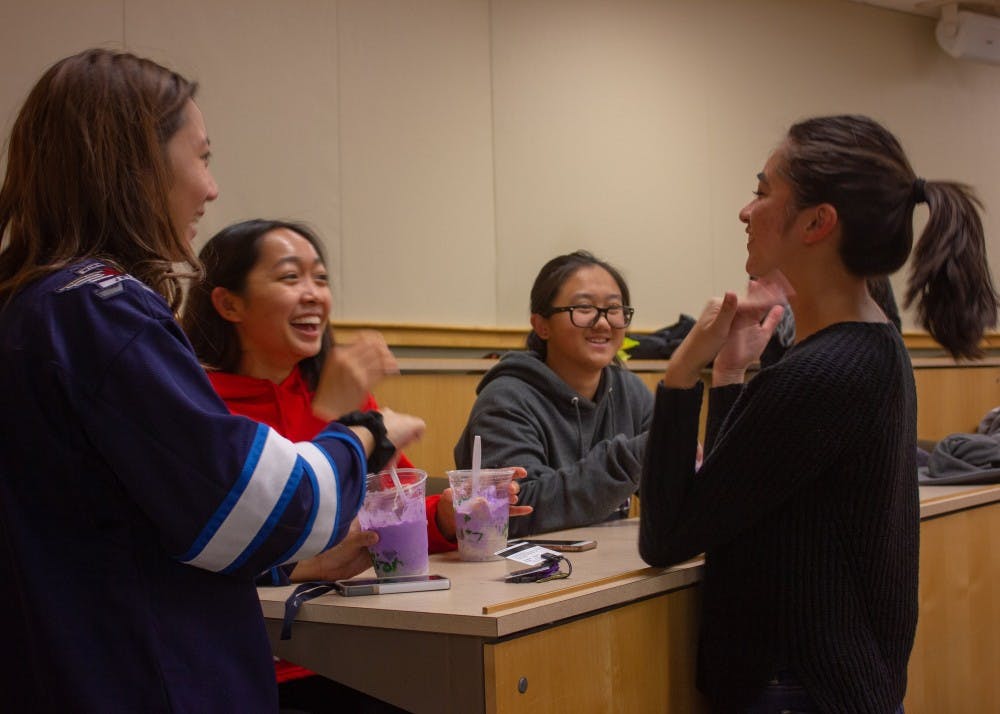
Each FASA member prepared their own Halo-Halo, a Filipino dessert, at their Halloween celebration. Some went for the more traditional toppings such as sweet beans and others opted for flan and fruit.
Another aspect of the club is its focus in language. There are hundreds of dialects in the Filipino language, but Tagalog is one of the main ones. Some members of FASA can speak the language fluently, while others only know a few words, Martin said. Sometimes, FASA members that are fluent will host workshops where they’ll teach members about the language and how to speak it.
FASA goes beyond just cultural and culinary expressions of Filipino heritage, and can be a safe space for students to understand what their heritage means to them.
“I think I first joined just because I’m Filipino and from my hometown there wasn’t a lot of Filipino culture,” Tanega said. “So just having a place to explore that culture is kind of what pulled me the most towards FASA.”
Garcia expressed her hopes for the FASA community as they continue to foster relationships between students on campus.
“I would just like to see FASA grow more in the sense that we keep building our culture night and get awareness on campus about what our culture is and what our club does, and just that it continues to be a supporting environment for people of color on campus,” Garcia said.
Martin said that all UP community members are welcomed and encouraged to join the FASA community. At the Student Activities Fair, members of FASA told people that FASA stood for “For All Students Association” to make everyone feel welcome.
“People love good food, people love good company, and people love a good time,” Martin said. “And I feel like if you just go to an event, basically you are going to get at least one of those, if not all of them.”
Madison McManus is a news reporter at The Beacon. She can be reached at mcmanus20@up.edu.



